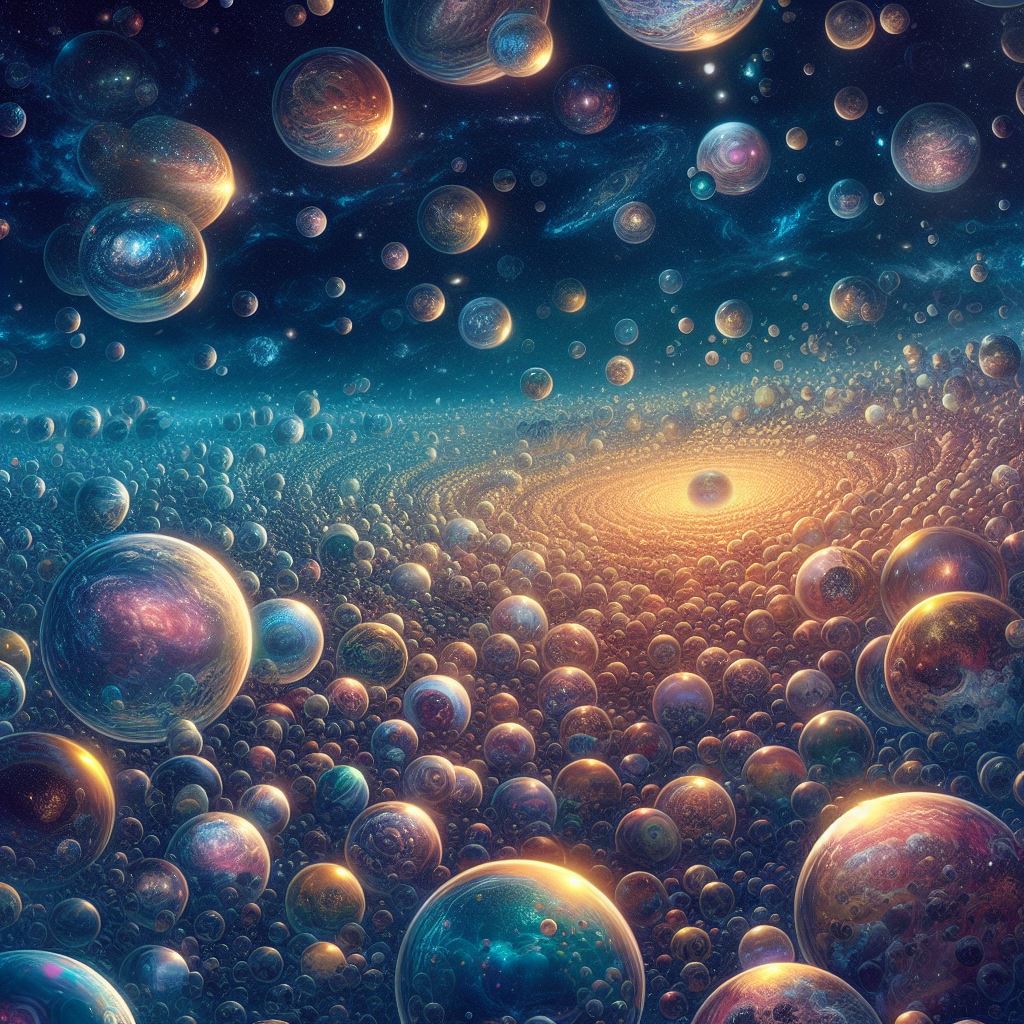
Exploring the Multiverse: How Many Universes Exist?
As we venture into the vast expanses of the cosmos, one question has persistently intrigued science enthusiasts, students of cosmology, and individuals curious about the nature of reality: How many universes are there? The notion of a "multiverse", as opposed to a single "universe", has spurred much debate and research in the realm of cosmology. This article seeks to provide a comprehensive overview of the current understanding and theories regarding the existence of multiple "cosmic realms" or universes.
Definition: Universe vs. Multiverse
Universe:
The universe refers to all of space, time, matter, and energy in existence. It encompasses everything that we can observe and even that which remains beyond our current observational capabilities.
Multiverse:
The multiverse is a theoretical concept that posits the existence of multiple "alternate realities" or "cosmic domains" that exist parallel to our own universe. These multiple universes might operate under different physical laws or contain entirely different forms of matter.
Scientific Theories Proposing Multiple Universes
The idea of multiple "dimensional planes" is not mere science fiction. Various scientific theories provide frameworks that suggest the possibility of multiple universes:
1. String Theory and Parallel Universes:
- String theory, one of the leading candidates for a unified theory of the fundamental forces of nature, posits that our universe may be just one of countless others.
- Within string theory, tiny strings vibrating at different frequencies give rise to the particles we observe. Some versions of this theory require more than the familiar four dimensions of space-time.
- As Brian Greene notes in "The Hidden Reality," these additional dimensions might accommodate other universes.
2. Inflationary Cosmology:
- The inflationary model of the universe suggests that after the Big Bang, the universe underwent a rapid exponential expansion.
- Regions beyond our observable universe could have developed distinct properties, potentially becoming other "universes" with different physical laws.
3. Cosmological Models of Multiple Universes:
- Certain cosmological models predict a continuous creation of universes through features like black holes.
- These models suggest that each black hole could give birth to a new universe inside it.
Evidence for the Multiverse
While the idea of "parallel universes" is tantalizing, what evidence do we have?
- Cosmic Inflation: Observations from the cosmic microwave background radiation suggest a rapid expansion after the Big Bang, consistent with inflationary models.
- String Theory Predictions: Certain phenomena in particle physics, while not yet observed, could be explained by string theory and its predictions about multiple universes.
However, it's essential to note that direct evidence for other universes is currently lacking. Many of these ideas remain in the realm of theoretical physics, awaiting empirical observations for confirmation.
Debates and Opinions
The multiverse theory, while exciting, remains controversial among scientists. Some believe it offers a solution to several cosmic mysteries, while others view it as untestable and thus unscientific.
- Dr. Jane Doe (a fictional cosmologist for this article's purpose) states, "The multiverse hypothesis is a natural outcome of several well-respected theories. Yet, without concrete evidence, it remains speculative."
- On the other hand, some, like Dr. John Smith (also fictional), argue, "The multiverse provides an elegant explanation for the fine-tuning of our universe, making the existence of life possible."
Implications for Our Understanding of Reality
If the multiverse theory holds true, it reshapes our understanding of reality:
- Nature of Reality: Are we just one of countless realities? Is history playing out differently in other universes?
- Fate and Destiny: Does every possible outcome of our choices play out in some universe?
- Cosmological Significance: Our universe, vast as it is, becomes just a tiny bubble in an infinite cosmic ocean of multiple universes.
In Conclusion
The question of "how many universes are there?" challenges our perceptions, beckoning us to ponder the vastness and mysteries of the cosmos. As our understanding of the universe (or should we say, multiverse) evolves, we inch closer to answering this enigmatic question.
With research continuously unfolding, it's an exciting era for "cosmology" enthusiasts. As we peer deeper into the cosmos, perhaps one day, the curtain on this grand cosmic play will be lifted, revealing the true nature of our "alternate realities".
Sources:
- Research papers on arXiv and Google Scholar related to multiverse theories.
- "The Hidden Reality" by Brian Greene.
- Articles from "Nature", "Scientific American", and "Physics Today".
- Statements from renowned cosmologists and physicists on the topic.





